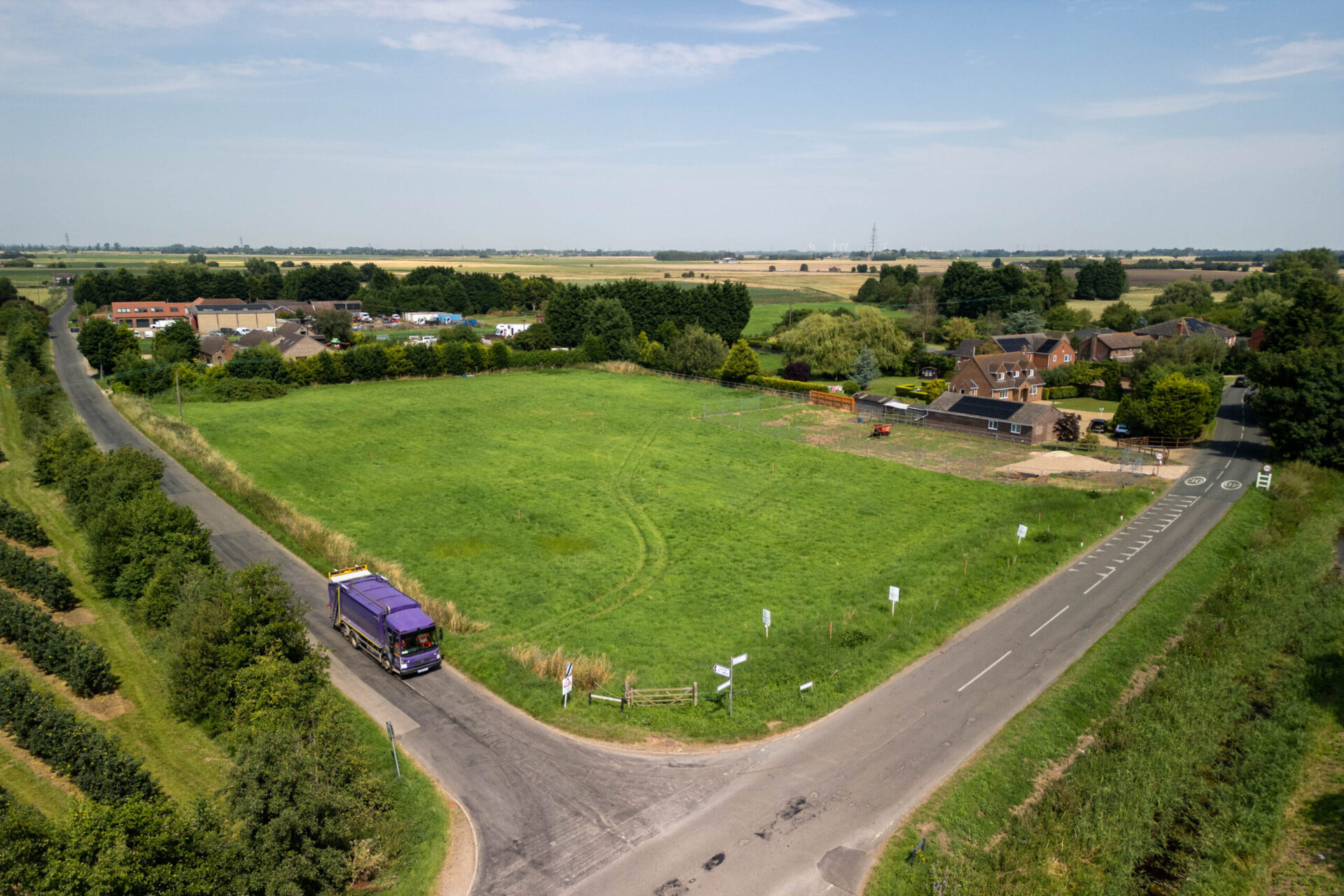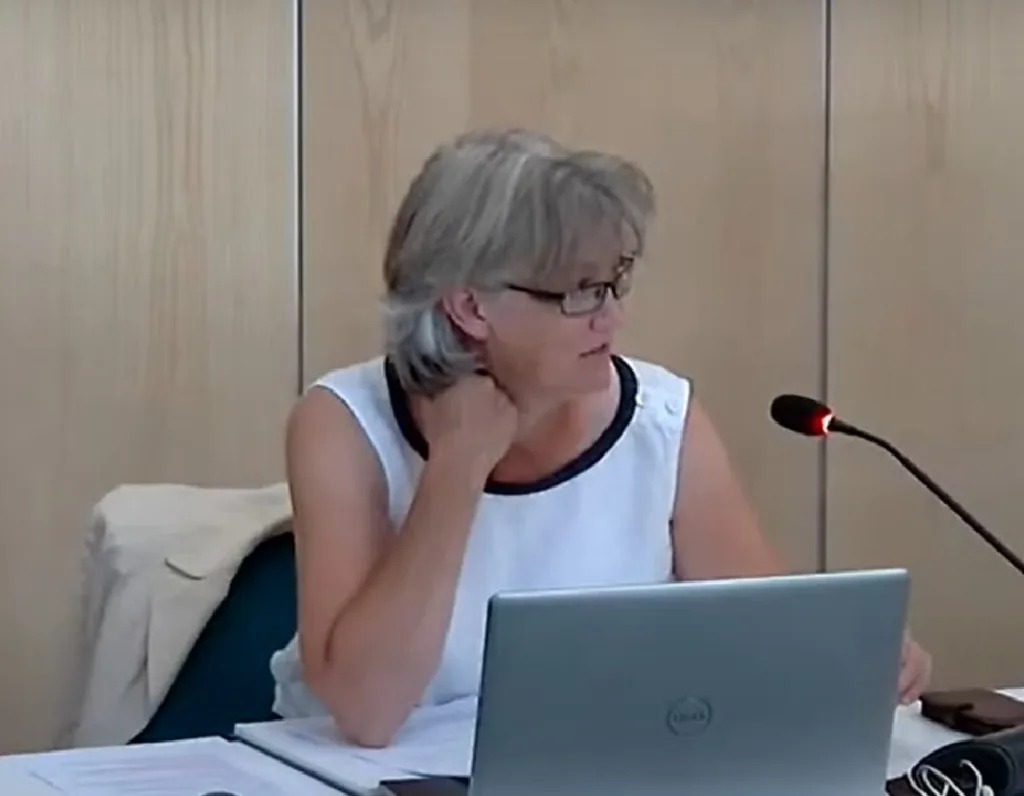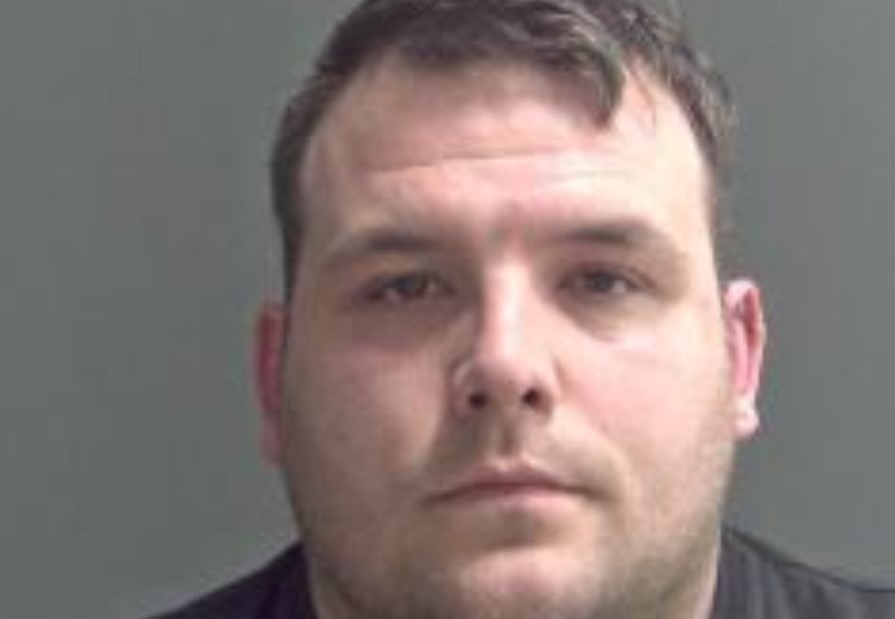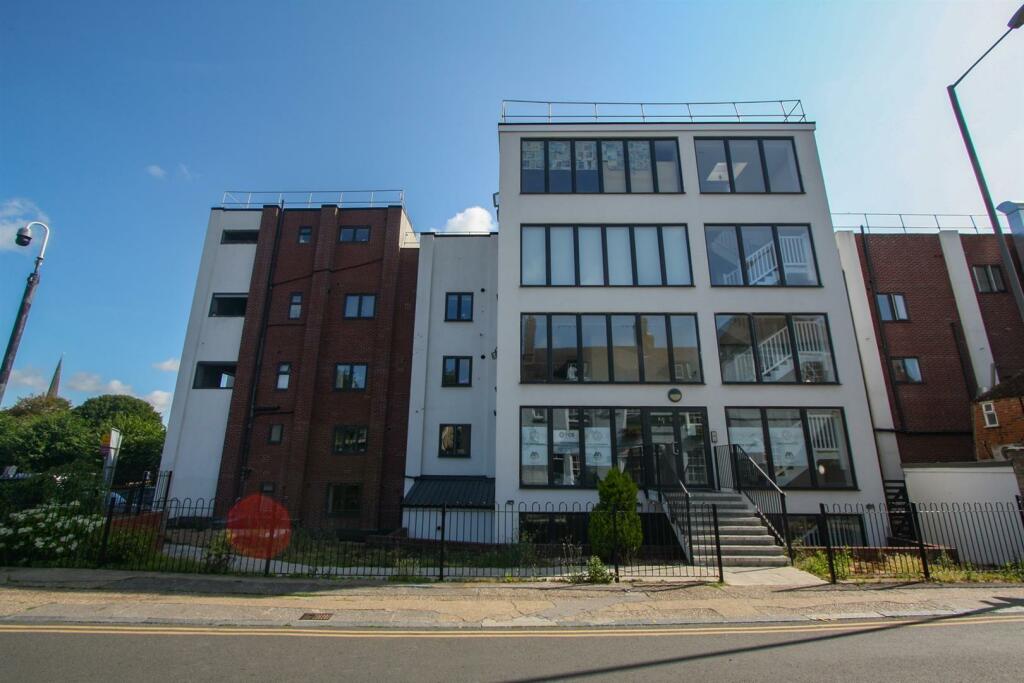Land owners across Fenland are benefitting from an unofficial relaxation of planning rules that even one of the two councillors mainly responsible argues that “no councillor has ever been sent to prison for making a wrong decision”. Cllr Ian Benney believes that if the planning committee finds itself in trouble ‘it will be the council that picks up the bill”.
Warnings that reversing recently determined applications risk being in breach of the code of conduct and referral to the local government ombudsman were given to them by the council’s legal chief Stephen Turnbull. His warnings fell on deaf ears.
After first reporting on this last September, and with no action taken since, CambsNews will test the code of conduct – we are compiling a complaint.
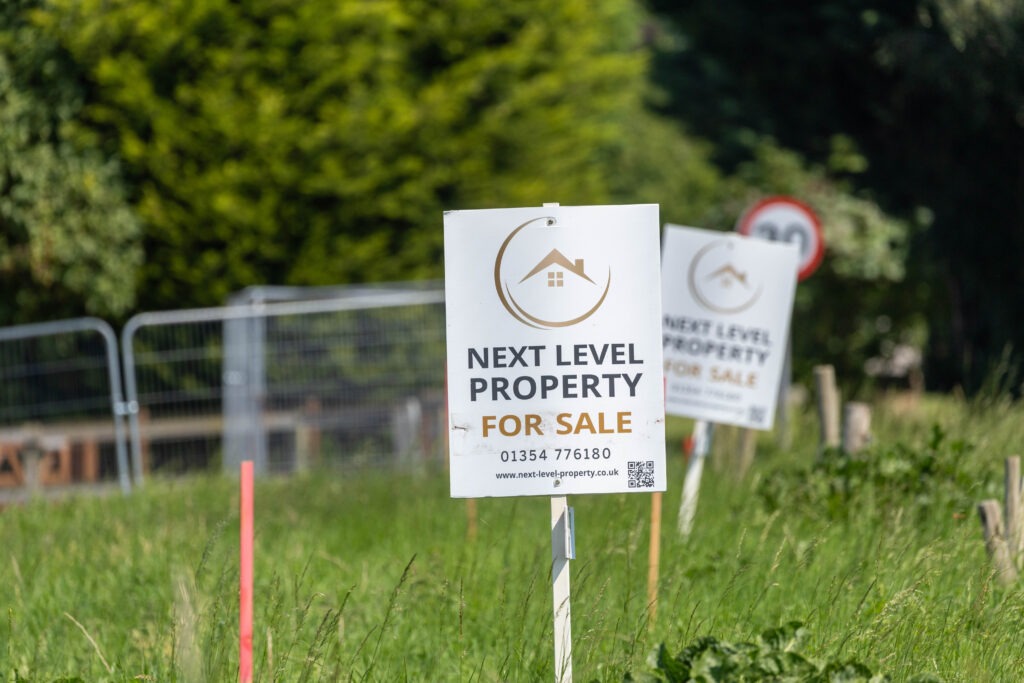
In many instances the planning committee has ignored its own Local Plan, ignored parish council recommendations to refuse applications, ignored the views of local councillors, and ignored their own officers’ recommendations for refusal.
Developers sense the wind of the change, re-submit applications which have been refused within recent years and often, with minimal or no change, gain approval.
And applicants are using a procedural rule which allows just 6 people writing in to support an application – where the recommendation is expected to be refusal – to ensure the decision is made not by officers but is handed to the planning committee.
I've pulled the relevant section from the meeting and uploaded to YouTube.https://t.co/5BVcJBIFm7
— Mark Hemment (@MarkHemment) July 29, 2024
In one instance we discovered an application where a Planning Inspectorate had upheld an appeal to refuse one home in a village but within months the farmer returned with an application for 3 homes which the planning committee – against officers recommendation – approved.
Cllr Ian Benney, a cabinet member at Fenland District Council and a planning committee member, is one of two councillors (the other is Cllr Jan French) that have wreaked havoc among council officers for challenging recommendations to refuse dozens of planning applications.
An investigation by Cambs News – supported by a small group of individuals – has shown 121 homes have been approved since January 2022 against the recommendations of planning officers or where the application has been resubmitted.
Cllr Benney has proposed or seconded 23 of the 30 applications that go against planning officers recommendations (77 per cent).
Cllr French has proposed or seconded 18 of the 30 planning applications that go against the recommendations of planning officers recommendations (60 per cent).
For our first example (more will follow in future articles), let’s consider the application by McDermott Residential Property Ltd to build up to 5 homes west of 176 High Road, Gorefield.
The application was received by the district council on June 5, 2023, validated on June 26, and put on the agenda for decision for the planning committee on August 23.
It was identical to that refused the year before for failing to adhere to the Local Plan which limits Gorefield – as a “small village” – to infill. The site was “clearly at odds” with the Local Plan.
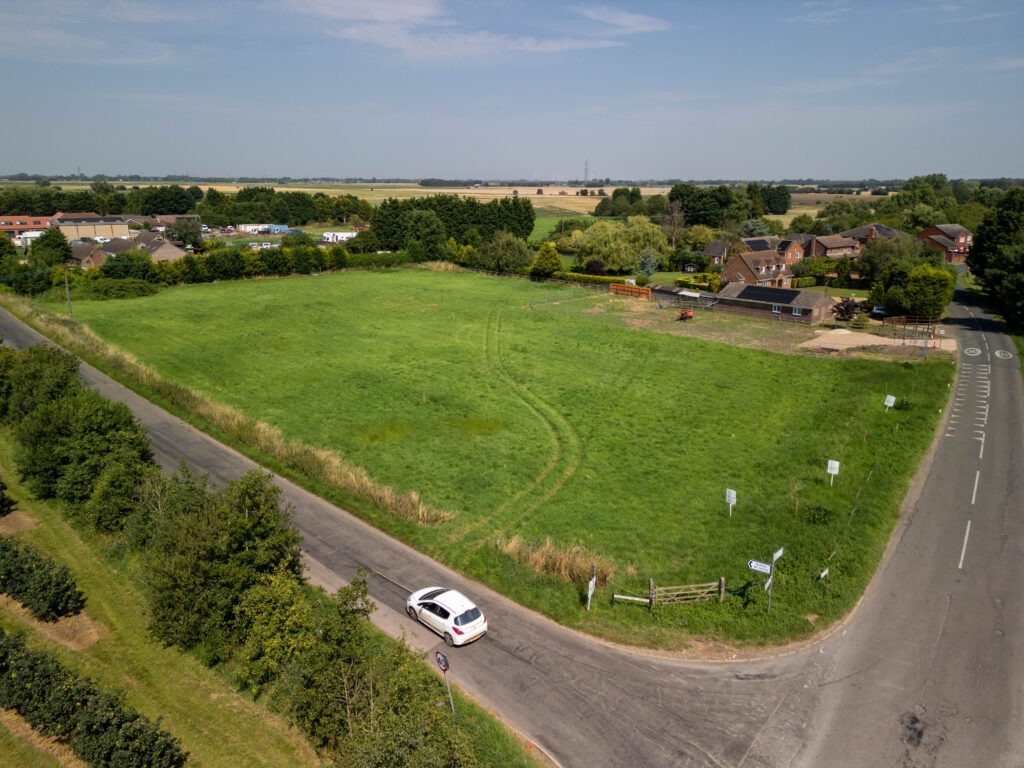
“Real and actual character harm would arise through the consolidation of the built form in this location,” officers concluded.
Planners argued that the land is “within an area which currently serves to mark the gentle transition between the open countryside and the built form of the village this being clearly contrary to policy”.
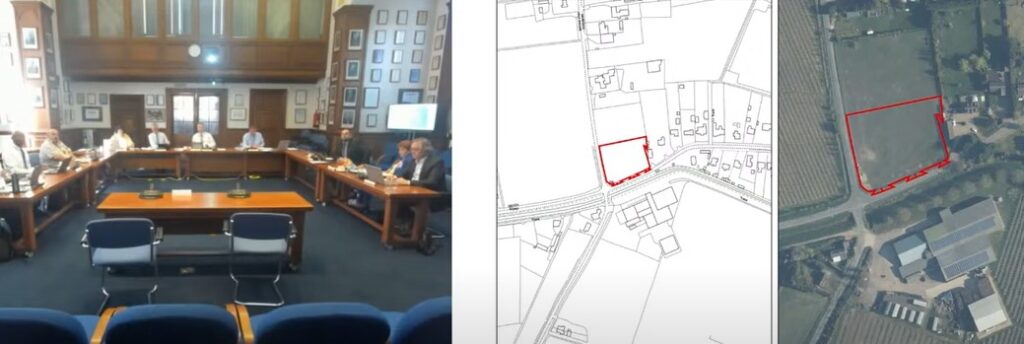
Other issues questioned if other sites had been considered and flooding risks.
But here it was, back this time before a committee, and for the reason that the applicant had 10 letters of support from 8 addresses within Gorefield (x5), Leverington (x2) and Upwell (x1).
The letters claimed more homes were needed to support local business, it would provide much needed new housing, “the proposed site is conveniently located near local amenities, making it an ideal location for families and individuals alike” and new homes would create new jobs and stimulate economic growth.
Objectors included Gorefield Parish Council who claimed it is “development in the open countryside, the site has flooding problems and one of the accesses is directly next to the junction with Hassock Hill Drove.
“Gorefield is a small growth village and already has many building plots being developed.”
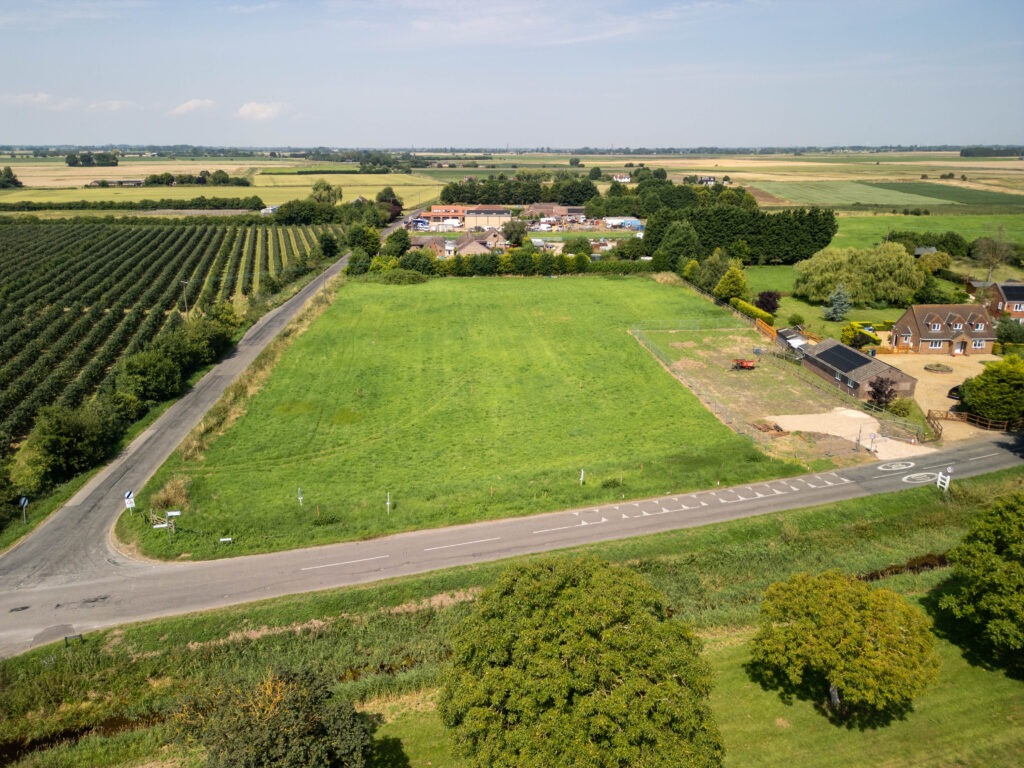
Six letters of objection from 4 addresses along High Road, Gorefield pointed out it was an identical application to that previously refused, “the houses are in a dangerous place, there is no safety, no pavement, already busy with it being a turning circle for the local bus route”.
Other issues raised included the assertion that “accesses to the houses are dangerously close to a blind corner”.
Among those on the planning committee on this occasion was Cllr Gavin Booth who lost out when he proposed the council should support the planning officers recommendation for refusal.

“This is within my ward,” he said. “I think part of the main reason that we need to look at this is whether we consider this is within the village of Gorefield – to my mind it would be extending the village boundary which is obviously what the officers are referring to.
“It would be going against policy from that perspective, so I find it difficult to support this one on that basis also obviously the parish council recommended refusal.
“I think we should listen to parish councils where we can because they know what’s happening locally and they’ve got local knowledge.”
But the committee voted to reject the officers’ recommendation.
Turmoil inside Fenland Council over code of conduct planning challenges
Cllr Benney argued that the committee was again in a situation where the proposal to refuse had been rejected and another proposal was probably going to be put on the table.
He said there had been a fresh planning committee since the earlier refusal and as such the application may not have changed much “but the opinion of the decision makers has changed.
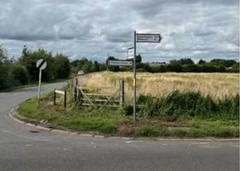
“And because the opinion of the decision makers has changed how do you get around that one because if the committee has voted that they don’t want to refuse this, and they do want to approve it, how do you get around that one.
“Because if it looks like the committee want to approve this it cannot be where things can be stuck forever where things cannot change we cannot not have change.
“Does this mean for the next 200 years this site will never be built on because things do change.
“The application itself hasn’t, but we are in a position where the committee wants to approve this or maybe we’ll find out when it comes to a vote. We cannot not have change.
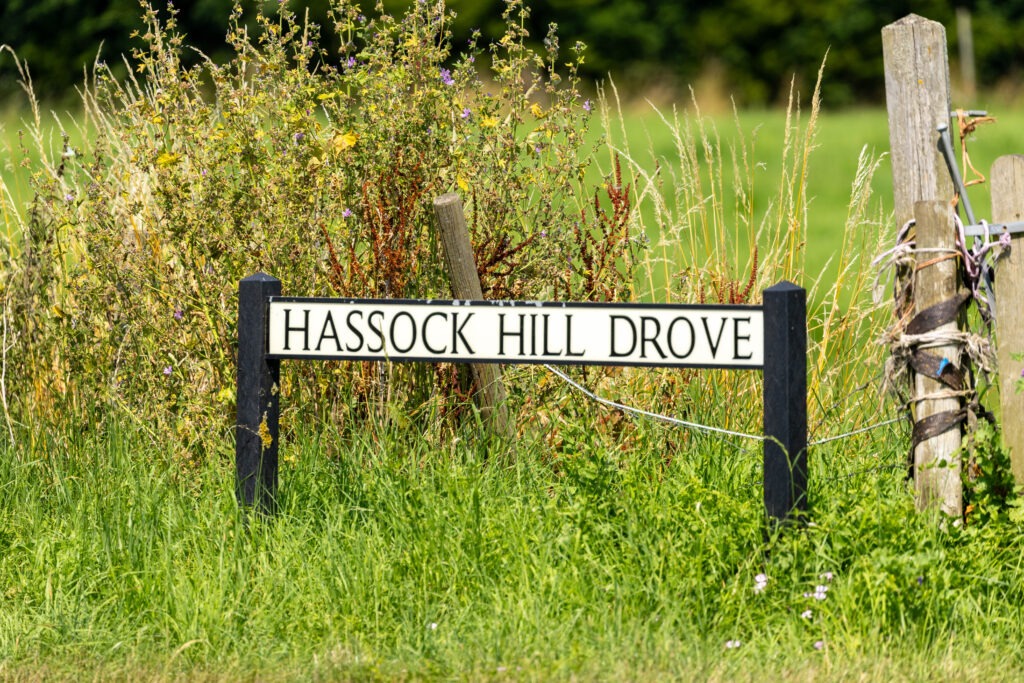
“So, in terms of code of conduct we are where we are; members will vote whichever way.
“It could be that somebody will put a proposal forward to change to approve this application and members could change their mind and that proposal could fail and then we have to go back to another proposal which would then be to refuse it; that’s really where we are.
“And ultimately yes we talk of the code of conduct which came up in conversation last month and has come up again this month but legally who’s going to challenge it.
Fenland Council reveals the £550,000 extra cost of not being able to recruit permanent staff
“Who’s going to put the money up for a JR (judicial review) on this one and really if they do, no councillor has ever been sent to prison for making a wrong decision.”
And turning to Stephen Turnbull, the council’s legal officer, Cllr Benney said: “It will be the council that picks the bill -so that’s where we are, and you know if it goes to the point, and it then becomes an approved decision that may not sit right with a code of conduct but we will be where we are if members vote that way – how do we get around that line Stephen?”.
Mr Turnbull drew the committee’s attention to the code of conduct and said for those not familiar with it that they could face a “serious risk of challenges posed by failure to give and record clear and convincing planning reasons for the approval of planning applications where there is a history of refusals by the council.
“And in this case we have a very recent refusal which is within the last 12 months and the code of practice also says that if the council is minded to approve an application previously refused the proposal of the motion must state what significant change in planning circumstances has occurred since the previous decisions.
“The council’s code of practice requires that anyone who proposes that must point to a change in planning circumstances.”
Cllr Benney argued that the new committee had “different people who have different perceptions”.
Mr Turnbull replied that a “significant change in the membership of the planning committee does not justify inconsistency between current and previous decisions.
“So changing personnel on the planning committee is not a planning reason for changing a previous decision.”
He also advised councillors that policies can change and from a constitutional point of view this could be done through the new Local Plan which is currently being considered.
This area of Gorefield might well be allocated for housing, and that would legitimate.
“But it’s right that the council has to be consistent in this decision making so if this became came before a planning inspector who looked at the council having refused it last year with no change in circumstances, it will be seen as a fairly eccentric decision and not consistent with previous decision.
“I ‘m not saying that you must refuse this application, but I have to point this out: it’s not my code but your code of practice written by your members and that’s what it says.
“And if it came before the ombudsman for example rather than judicial review, he has power to order payment of compensation and publicly declare the council is guilty of maladministration.”
Cllr Benney told Mr Turnbull that there were four new members on the planning committee that were not that there last time the Gorefield decision was made “and they are entitled to a difference of opinion, an interpretation of policy with that interpretation of policy being taken in a different light – that is also how the decisions are arrived at. You know playing devil’s advocate where we are.”
Mr Turnbull again reminded the committee that the code of practice is there to encourage consistency in planning decisions “so it can’t be right that new members of a committee take contrary decisions to the previous historic decisions that have been made in the recent past”.
Cllr Booth also felt the committee needed to be aware of the code of practice to ensure “that this council looks like it is acting appropriately and consistently in regard to planning applications
“It’s one of the big criticisms we often get that we don’t have a consistent approach.”
He quoted the policies which led to the previous application being rejected and reminded colleagues “we don’t change policy between committee meetings, thank you”
But Cllr French insisted it was a matter of interpretation, how officers interpret it and how members approach matters.
She said the previous decision was made by officers and this time it was before the planning committee – had it had been a previous committee decision it would have been a different matter.
“As you know over many years there is interpretation what members see and I think we can see this right across this afternoon’s meeting how we interpret policies against how officers so I think you know we can be justified by having a different view to officers,” she said.
“That does not take anything away from the professionalism of officers it’s just we interpret it a different way.”
Cllr Benney proposed the committee approve the application, arguing that the houses would not be in the open countryside and “there is a building opposite this, and this is square in the end of the village”.
He had often said he liked to see “nice big houses on the entrance into a village -it sets the scene for people’s opinions and how they feel about a village when they drive in it.”
Cllr Benney said a sequential test had shown there were no other potential sites in the village and “it would be reasonable to build here on flood zone 3 with mitigation risk and the mitigation will certainly be there to cover so that so they would be my reasons for going against the officers recommendation. Does that suit?”
The proposal was seconded by Cllr French and carried 5-2.
PRESENT AT PLANNING COMMITTEE JULY 2023: Councillor C Marks (Vice-Chairman), Councillor I Benney, Councillor Mrs J French, Councillor R Gerstner, Councillor S Imafidon, Councillor G Booth (Substitute) and Councillor M Purser (Substitute) APOLOGIES: Councillor D Connor (Chairman) and Councillor P Hicks. Officers in attendance: David Rowen (Development Manager),
EXTRACT FROM FENLAND DISTRICT COUNCIL CODE OF CONDUCT
Approval of Repeat Applications for Development previously refused.
The principles which can be distilled from Ombudsman cases are as follows:
- there is perversity and maladministration, if a local planning authority approves a planning application, which has previously been refused, where there has not been a significant change in the planning circumstances.
- the fact that there has been a significant change in the membership of the planning committee does not justify inconsistency between current and previous decisions.
- the perversity of approving a planning application, which has been previously refused, where there has been no significant change in the planning circumstances, is maladministration if: insufficient weight has been given to officers’ recommendations and Central Government guidance; and there is failure to give and record reasons for the authority’s change of mind.
Members are advised that a serious risk of challenge is posed by a failure to give and record clear and convincing planning reasons for the approval of planning applications for which there is a history of refusals by the council and inspectors appointed by the Secretary of State where there has been no significant change in the planning circumstances.
If a committee is minded to approve an application for development previously refused, the proposer of the motion for approval or the chairman should state what the significant change in the planning circumstances justifying approval before a vote is taken.


